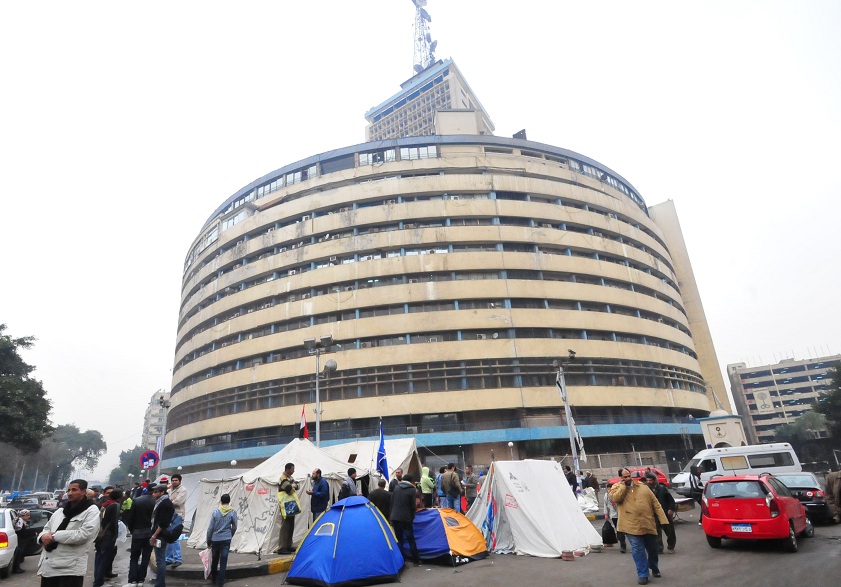A group of officials at the Egyptian Radio and Television Union (ERTU), also known as Maspero, are being investigated after they were accused of airing an old interview of President Abdel Fattah Al-Sisi on Tuesday instead of a recent interview with American public broadcaster PBS on Tuesday.
Following the mishap, ERTU Head Safa Hegazy ordered the dismissal of the head of the union’s News Department, Mostafa Shehata, and assigned the department’s deputy head, Khaled Mehanna, to oversee the position until a new head is appointed. This is in addition to the investigation of all those who were involved in the professional error.
Shehata told Daily News Egypt that, following the broadcasting of the interview, he recognised that there were some discussions related to past events in the country, so he summoned the person responsible, Nehal Aref, and when he asked her about the date of the interview she said that it is the current one. However, when he ordered her to check the date she confirmed that it is an old interview.
He subsequently referred Aref to investigation. The error was recognised after the old interview had already been on air for eight minutes.
TV Anchor Azza El-Hennawy, who was dismissed from ERTU, said that she thinks the situation was planned. “How can such an interview be aired without being referred to management control for checking?” she asked.
The TV anchor was dismissed after she was accused of criticising Al-Sisi’s presidential performance during an episode with journalist Osama Shehata.
She assumes that the error might be either planned against Shehata or carried out in order to distort the reputation of Egyptian television.
Hennawy added that, in such cases, high-level officials are the ones who should be dismissed, since they are the ones who hired those who committed the error.
Regarding the details of the error, Shehata narrated the situation from the beginning by saying that there was a general meeting for all departments in Maspero where they agreed on certain instructions, publishing live news immediately, and if it is recorded material it should be prepared and published immediately.
”After I was informed that the interview will start at 5am local time, I sent a message to the entire department in our group. I added details on its duration, and on what channels we should air it, and that there will be two breaks, not for commercials but about the channel’s programmes,” Shehata said.
He explained that the channel was not able to air the interview live, as American channel signals are not available in Egypt. Shehata suggested using the website, but the channel rejected the idea.
The TV anchor criticised the hiring process at ERTU, saying that high-level officials always choose fellow officials in accordance to the agendas that support the regime. As a result, he argued that such errors are bound to occur.


